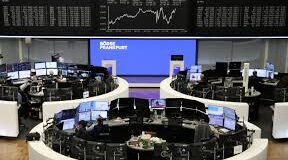
While that may take some of the heat out of auto finance, the sudden deceleration threatens car makers, dealers and the wider sector, which has been one of few growth drivers against a backdrop of declining exports and sluggish investment.”Our car sales in April and May fell by 50%,” said Sumete Patchuttorn, managing director of Mazda Mahachai.
“Finance firms are more cautious about lending now,” he said, adding that about 60%-70% of his clients’ loan requests were rejected this year, up from 30% in the previous year. More than 80% of car buyers rely on loans.
The car industry accounts for about a tenth of gross domestic product in Southeast Asia’s second-biggest economy. Bank of Ayudhya said car sales contributed 0.4 percentage point to last year’s 4.1% economic growth.
Although roughly half the cars are made for export, that part of the sector has also been declining.
“A slowdown in car sales this year will also drag down consumption,” said Naris Sathapholdeja, head of TMB Analytics, adding car sales contributed a fifth to last year’s 4.6% growth in consumption. He sees GDP growth of 3% this year, with consumption up 3.5%.
Worried that car loans were driving household debt to one of the highest levels in Asia – at about 80% of GDP – the central bank said in April it had started monitoring car loans and considering loan standards since the beginning of the year.Of particular concern for the central bank is the fact that car loans have the highest delinquency rate among consumer debt products, with 6.9% of them between one- and three-months overdue at the end of March.
Analysts said possible central bank curbs could include debt service ratios for borrowers or down payments required on car purchases.
Those possibilities alone were enough to knock annual car sales growth from nearly 20% in 2018, its fastest since 2012, to 3.7% year-on-year in May, its slowest since May 2017.
In turn, on-year growth in auto loan volumes has slowed to 11.4% in the first quarter from 12.6% in 2018, the fastest in six years.
The research unit of Kasikornbank said car sales might contract as much as 6% this year if the BOT required a down payment of 25% on car purchases.
The Federation of Thai Industries expects car sales to rise just 2.4%, said Surapong Paisitpattanapong, spokesman of the FTI’s automotive industry division.
“The market has been stagnant this year,” said Phanumast Rungkakulnuwat, chief executive officer of Autocorp Holding, which sells Honda cars (7267.T). Last year its sales grew 10%.
The BOT predicts GDP growth of just 3.3% this year. Thailand has lagged regional peers for years and is forecast to grow more slowly than any country in Southeast Asia except Singapore.
 Weekly Bangla Mirror | Bangla Mirror, Bangladeshi news in UK, bangla mirror news
Weekly Bangla Mirror | Bangla Mirror, Bangladeshi news in UK, bangla mirror news







